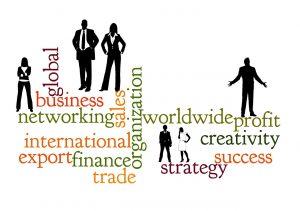
In general, Mergers and Acquisitions have been an excellent tool to gain scale rapidly, buy market shares or simply increase geographical reach, just to name a few of the advantages. M&A has also been a proven way to acquire talent, technology, new products and know-how too… the famous Make or Buy decision. In mature markets, it is also a good way to dominate your segment by ‘getting rid’ of competitors.
In smaller, developing economies, the same applies, but, in addition, cross-border M&A is also often seen as a logical – or even default – exit strategy by local players: “Let’s expand regionally and so that we can then sell the company to a sector leader in [name the largest neighboring economy here]” … and to be honest, chances are that this will be the exit for those companies that manage to properly scale within their regions and become leading actors in their respective markets.
 As the world economies open and as globalization becomes more apparent, acquiring a company abroad can now be, in and of itself, a strategic avenue to build or maintain a market position. Once almost reserved to the largest conglomerates looking at new markets for growth in order to compensate for the saturation of their existing fiefdoms; as the world’s economic barriers fall, cross-border transactions are becoming more tangible and are now at the reach of mid-sized companies as a way to differentiate from their competition, grow, or simply, better serve their customers.
As the world economies open and as globalization becomes more apparent, acquiring a company abroad can now be, in and of itself, a strategic avenue to build or maintain a market position. Once almost reserved to the largest conglomerates looking at new markets for growth in order to compensate for the saturation of their existing fiefdoms; as the world’s economic barriers fall, cross-border transactions are becoming more tangible and are now at the reach of mid-sized companies as a way to differentiate from their competition, grow, or simply, better serve their customers.
Today , any person can invest in foreign stocks with a few clicks of a mouse, be it in specific publicly traded companies or in general EFTs focused on specific markets, an accomplishment that was deemed impossible 25 years ago to the average Joe. The reasons to do so, however, haven’t changed much in all those years: in most cases, you’ll opt for those stocks in order to best diversify a portfolio or because you’re willing to increase your risks in exchange for higher returns.
In a corporate environment, investing in subsidiaries abroad allows for the same benefits but it can also actually help reduce the company’s overall risk profile by creating a global canvas upon which to build an efficient strategy.
There are direct, tangible benefits such as increased flexibility and the ability to maneuver through complex international trade policies. Let’s take the recent US-China “trade war” as an example. Importing in the US specific parts from China now can imply an added tariff and, as such, a hike in its production costs. Now, what if that company could switch the assembly of that product to a subsidiary not affected by these tariffs, and then import those assembled products back to the US? As this Business Insider‘s article described in more details, in such cases, having a global footprint allows multinationals to be more flexible and to adapt to ever-changing local regulations.
(As a side note, this is yet another reason tariffs are almost never the answer, but that’s another topic for another day. Plus, let’s not forget that barriers (of any kind) do make for great political rhetoric…)
 There are also many less tangible benefits to building a multinational firm, far beyond the common – and often controversial – factors of lowering costs of personal, tax efficiencies, etc. Acquiring a company in another country implies acquiring a team in that country too, with all the local knowledge, know-how, and understanding of the local culture, trends and other sociodemographic factors. You’re also acquiring a brand, a name, a reputation, a market presence and a legacy that, over the years, have generated repeat sales to loyal and grateful clients and customers.
There are also many less tangible benefits to building a multinational firm, far beyond the common – and often controversial – factors of lowering costs of personal, tax efficiencies, etc. Acquiring a company in another country implies acquiring a team in that country too, with all the local knowledge, know-how, and understanding of the local culture, trends and other sociodemographic factors. You’re also acquiring a brand, a name, a reputation, a market presence and a legacy that, over the years, have generated repeat sales to loyal and grateful clients and customers.
Although some of these factors can be developed, over time, many others can represent years of trials and errors and, oftentimes, substantial investments, for a foreign company to level up to its local competitors, irrespective of the size of that company. I’m not saying that successfully closing a cross-border M&A transaction – and subsequently integrating it – is a piece of cake, but it does save years of costly efforts when compared to a greenfield approach.
In short, M&A transactions, in the context of a broader globalization wave, do contribute to companies thriving in this global landscape. More than just cash flows and new assets, business acquiring companies abroad acquire a history, local know-how, talent and best practices that, when properly integrated, can generate significant results for the benefit of all stakeholders involved.
Image Credits: lailajuliana / Pixabay, pixabay – geralt.
